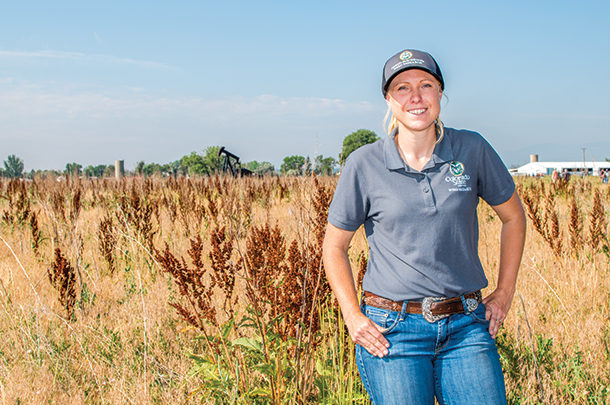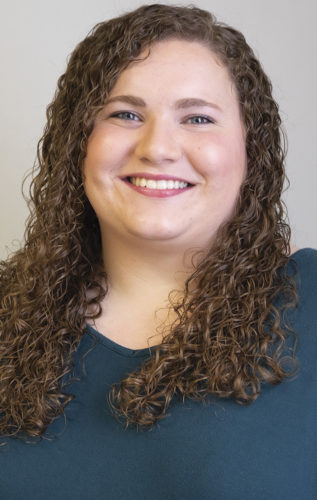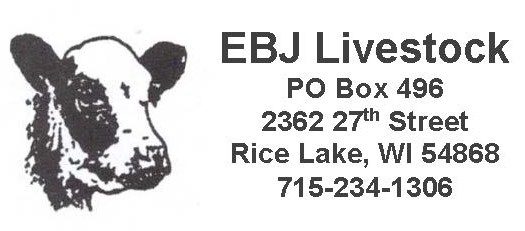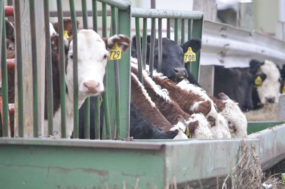Shannon Clark is a vegetation management stewardship and development specialist in Bayer’s environmental science division. She conducts and analyzes data from field trials, presents the research to academic and consumer groups, and works with ranchers and land managers on rangeland weed issues.
How have your experiences working with ranchers influenced your growth, personally and professionally?
In my current role, I’ve had the opportunity to work with folks from many different backgrounds – ranchers, agency personnel, academics and industry personnel. I have learned everyone has different experiences that shape their perspectives. I have grown in the way I look at and approach situations. Being aware of these differences when interacting with people allows me to keep an open mind, both in my personal life and professional life. I find when you keep an open mind, you can learn a lot from others.
What roadblocks have you run into, and how have you overcome them?
The biggest roadblock for me has been being a woman working in agriculture. Although more females are pursuing careers in agriculture, it is still a male-dominated industry. I think it’s difficult for male colleagues to completely understand the challenges women face in this industry, such as having children and trying to maintain a career. We also deal with customers who aren’t used to working with women. To overcome these roadblocks, I just forge through them as they come along. I’ve found most folks are just used to something being done one way, so if they’ve never dealt with a woman in a certain role, it’s just different for them. I found good communication goes a long way.
Who has influenced you in your career? Why?
My Ph.D. adviser has been the biggest influence on me in my career working in agriculture. His constant encouragement while I was studying under him for my Ph.D. helped me learn to believe in my abilities. Having someone so positive and encouraging on my side motivated me to work hard and pursue my dream job, which is the job I have now. And we still get to work together conducting and publishing research. I think everyone needs a cheerleader on their side.
What is the best piece of advice you’ve ever been given?
Never miss a good chance to shut up. This piece of advice is attributed to Will Rogers, but I think it’s a great point. You can learn a lot by just listening to others. And carefully choosing your words prevents you from saying something you might regret later. Be productive when talking and always allow others time to speak up as well.
What advice would you give to other women in your field?
Love what you do. I think oftentimes people focus on the reverse notion – do what you love. But not everyone has their dream job. I didn’t wake up one day and decide working as a weed scientist was my dream. I had a lot of great jobs along the way, and I found things I loved in each of them. Eventually, I discovered I really loved weed science. You may not be in your dream job, but you can still find things to love about what you are doing. Focus on making an impact – make a difference others will love. Or find things to love in your current job while pursuing a career you do love.
Who are other female role models you look up to? Why? (Can be personal or work-related)
My mom would have to be my top female role model. She has worked her way up to be very successful in the construction industry (a field dominated by men) through hard work and pure grit, all while raising three kids as a single mother. She taught me the value of hard work and good character.
How did you end up in the occupation you have now? Is this what you’ve always wanted to do?
I never even knew this occupation existed until I was in graduate school, so it’s definitely not something I always wanted to do. I studied communications in my undergrad, intending to go into law enforcement, but when I graduated in 2009 during the recession, I quickly realized there weren’t many job opportunities. That led me to go to graduate school, where I pursued a master’s degree in agriculture. During that time, I had the opportunity to do an internship as a landowner weed specialist. That, in turn, landed me a position working on a ranch in Estes Park, Colorado, where I started to fight the battle with cheatgrass and other invasive weeds. When I realized the difficulty ranchers faced in controlling invasive weeds, I decided to go back to school to pursue research on management of rangeland weeds. As a Ph.D. student and then as a postdoctoral researcher, I conducted herbicide research with a focus on rangelands. That is what ultimately led to my current position with Bayer.
Do you involve your family in your work? If so, how?
Yes. I’ve taken my kids (and husband) to evaluate field plots. I have started to teach my kids plant ID, and they actually enjoy it. Their favorite plant so far is a cactus because they found one shaped like Mickey Mouse’s head. Involving my family in my work when I can allows them to see what I do and shows my kids some of the different career possibilities. I also love that my daughter gets to have a female scientist as a role model.
If you weren’t doing what you are now, what would your job be?
I have a passion for coffee – I love to drink it, make it, talk about it – so I always joke with my husband that if I ever leave my job, I’m going to open a coffee cart and be a barista.
What inspires you to come to work each day?
I love what I do. Every day is different, and I get to work in some of the most beautiful places in the country. I also work with an amazing team of people. What I love most is when I can help a rancher or land manager solve a problem through the research I do.









